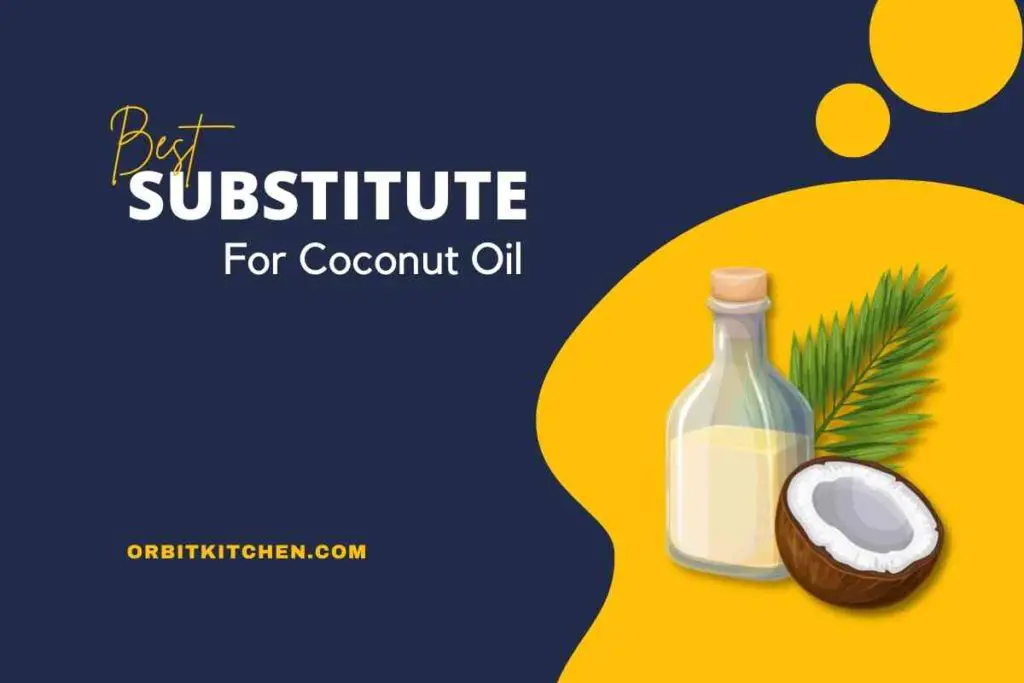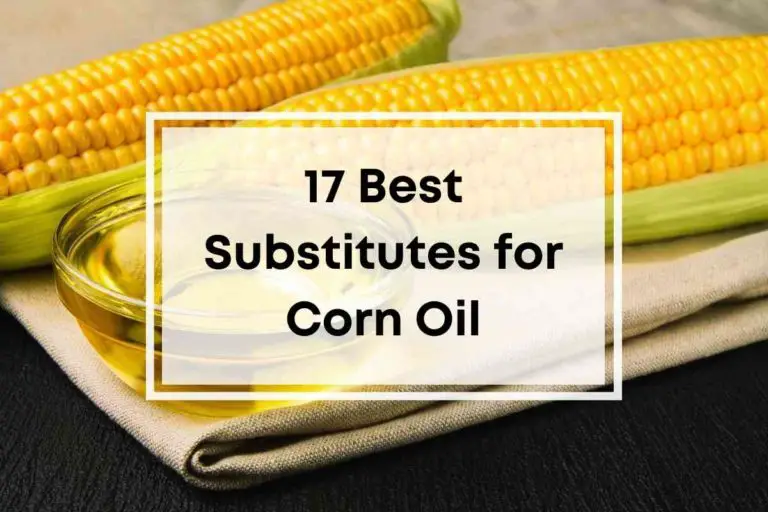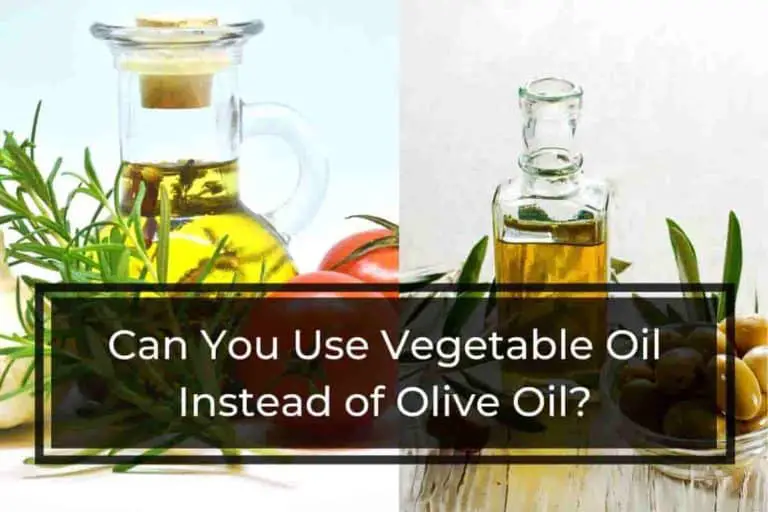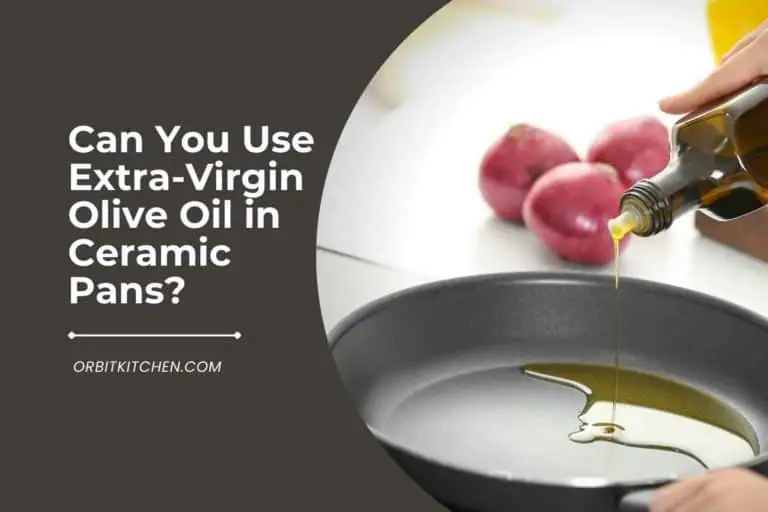21 Best Substitute For Coconut Oil
Coconut oil is an excellent sub for butter and other oils. But it’s not all-powerful. Some recipes, like baked goods, are best with coconut oil. Others are better with different types of oil (like olive or vegetable oils). And some dishes just aren’t meant to have coconut oil in them at all.
So what can you substitute for coconut oil?
The demand for healthy alternatives to coconut oil has grown substantially in recent years. Many people are looking for more affordable and easier-to-find substitutes than coconut oil.

21 Best Substitute For Coconut Oil
Here are our top 21 picks for the best substitute for coconut oil:
1. Safflower Oil
Safflower oil is an excellent substitute for coconut oil in recipes that call for a neutral oil. Safflower oil has a high smoke point (410°F) and can be used for cooking at high temperatures, making it ideal for sautéing or frying. It’s also an excellent choice when you want to add flavor to your food without increasing the fat content.
2. Canola Oil
Canola oil is a healthy choice that is also popular in the kitchen. It’s used for baking and cooking. This versatile vegetable oil can substitute for coconut oil in most dishes, but its low smoking point makes it a poor choice for high-heat cooking methods such as frying and sautéing.
3. Flaxseed Oil
Flaxseed oil is a good source of omega-3 fatty acids. Flaxseed oil is rich in essential fatty acids and contains alpha-linolenic acid, which can be converted to omega-3s by the body. In addition to omega 3s, flaxseed oil contains lignans that may help reduce inflammation and improve immune function.
4. Grapeseed Oil
Grapeseed oil is an excellent alternative to coconut oil. It is high in vitamin E, antioxidants, and linoleic acid—all great for the skin. It also has a light and neutral flavor that will not interfere with the taste of your food. Grapeseed oil is excellent for cooking, baking, frying, and more.
5. Sesame Oil
Sesame oil is an excellent substitute for coconut oil. It has a high smoke point and can be used in cooking and salad dressing. Sesame oil is also very rich in nutrients, so it’s good for you too!
If you’re looking for an alternative to coconut oil that will still give your recipes the same bold flavor and aroma, sesame oil might be just what you need.
6. Almond Oil
Almond oil is a good substitute for coconut oil. It contains Vitamin E, which helps your skin retain moisture, and is also full of magnesium, calcium, and zinc. This makes it an excellent alternative for those who want to use something different from the same ingredients.
Almond oil works well as a moisturizer and can be used on its own or with other types of oils like jojoba or grape seed to make your hair shinier
7. Extra Virgin Olive
One of the best alternatives to coconut oil is extra virgin olive oil. Extra virgin olive oil is a healthy alternative to coconut oil because it contains monounsaturated fats, antioxidants, and vitamin E. When choosing this healthy option, it’s important to remember that not all olive oils are created equal! Some have been stripped of their natural flavor and color by chemical processing, so make sure you’re buying an authentic extra virgin variety that hasn’t been processed or refined.
Health benefits: Extra-virgin olive oil contains 10% more antioxidants than other cooking oils like canola or corn seed. It also has about 20% more fat than most vegetable oils (about 75% monounsaturated fat).
Selecting an olive oil: Check the label for words such as “cold-pressed,” “unrefined,” or “first pressed.” You should also look for a harvest date on the bottle, if possible, so you know exactly how old your bottle of olive oil is before using it!
8. Neem Oil
Neem oil is an excellent alternative to coconut oil for those who prefer a plant-based option. It’s extracted from the seeds of the neem tree, native to India, which has been used in Ayurvedic medicine for thousands of years. Neem oil has antibacterial and antifungal properties that make it very effective at treating skin problems like acne. It can also be used as an oil cleanser or makeup remover, though it may leave your skin feeling dry if you use too much.
9. Walnut Oil
Walnut oil is another good option if you’re looking for a healthy, wholesome oil to replace coconut oil. It has a similar fatty acid profile and provides many of the same benefits as coconut oils.
Walnuts are rich in omega-3s and antioxidants, which help reduce inflammation and combat oxidative stress. They also contain vitamin E and B vitamins that can improve heart health.
But be careful: if you’re allergic or sensitive to nuts or nut products, this won’t be an appropriate replacement for coconut oil!
10. Butter
But if you’re looking for a butter substitute, look no further. Butter is an excellent alternative to coconut oil because it’s a great source of fat and protein. But what makes butter even better than coconut oil? Butter also contains vitamins A and E, calcium, and iron—all things that can help keep your body healthy!
11. Vegetable Oil
Vegetable oils are made from plants like soybeans, corn, and canola. These oils are generally liquid at room temperature and contain high omega-6 fatty acids and polyunsaturated fats.
Omega-6 fatty acids and polyunsaturated fats are beneficial for your health in moderation, but large amounts (such as those found in vegetable oils) can lead to inflammation when consumed over time. So why would you want to use an ingredient that can cause inflammation?
12. Ghee (Granola)
Ghee is a type of clarified butter that is made by heating butter until the milk solids separate and then straining off the ghee. Ghee has been used in Indian cooking since 3000 BC, so it’s one of those timeless ingredients that can bring a depth of flavor to any meal.
Ghee is an excellent source of vitamin K and vitamin A, both essential for healthy bones, hair, eyesight, and skin. It’s also high in fat which helps your body absorb essential vitamins and minerals from other foods you eat at the same time—so if you’re drinking ghee with your tea or coffee (which some people do), be sure to have some good sources of protein on hand!
Because it has such a strong flavor—similar to caramelized onions or roasted garlic—ghee works well when used in baking recipes that require coconut oil instead. But since, granola isn’t necessarily something people think about making with ghee instead of coconut oil unless they’re trying to cut out more dairy products from their diet.
13. Hemp Seed Oil
Hemp seed oil is high in omega-3 and six fatty acids, known for their anti-inflammatory properties. It also has vitamin E, B vitamins, and essential fatty acids, including arachidonic acid (AA), linoleic acid, oleic acid, and palmitic acid.
Along with its bevy of benefits for your skin and hair care routine, hemp seed oil provides anti-aging benefits like slowing down the aging process through fighting free radical damage to your cells caused by pollution or UV rays, among other things.
The hemp seed oil also contains antioxidants that help neutralize free radicals before they can do too much damage to your body’s cells. The high concentration of essential fatty acids in hemp seed oil makes it an excellent moisturizer on top of everything else!
14. Hazelnut Oil
It’s rich in vitamin E, which is a powerful antioxidant. This oil has a high smoking point and can be used for frying or baking. It also contains high levels of palmitoleic acid, an omega-7 fatty acid that may help lower cholesterol levels in the body.
Hazelnut oil is commonly used as a substitute for other nut oils such as walnut and macadamia nut because it has similar properties when it comes to cooking. However, hazelnut oil has less saturated fat than many other tree nuts, so it makes an excellent choice if you want to avoid saturated fats but still get that lovely nutty flavor from time to time!
15. Avocado Oil
Avocado oil is a healthy alternative to coconut oil that you can use in baking, cooking, and skin care. Avocado oil has monounsaturated fats, making it an excellent vitamin E source.
Coconut oil has saturated fats that are solid at room temperature, while avocado oil is liquid (but will turn solid if refrigerated). Avocado oil also has a much higher smoke point than coconut oil, making it a better option for high-heat cooking or baking.
Avocado oil is excellent for sensitive skin because few ingredients in the extraction process would irritate your face or body when you apply it—unlike some other oils like tea tree or lavender oils.
16. Avocado Puree
Avocado puree is a good substitute for coconut oil. It’s also a good substitute for butter, olive, and vegetable oil.
Avocados are rich in monounsaturated fatty acids that have been shown to lower LDL cholesterol (the “bad” kind) while increasing HDL (the “good” category). They’re also high in dietary fiber and contain several vitamins and minerals.
17. Shea Butter
Shea butter is a fat extracted from the nuts of the karite tree. It’s used as a moisturizer and skin care product and has been shown to have anti-inflammatory properties. Shea butter contains oleic acid, an omega-9 fatty acid that helps prevent water loss in the skin (1).
In addition to its cosmetic benefits, shea butter can be used as a substitute for coconut oil in baking recipes because it does not contain any saturated fats or cholesterol (2). If you don’t like using coconut oil on your skin but still want to reap its benefits, this is an excellent alternative!
18. Applesauce
Applesauce is another good substitute for coconut oil in baking, cooking, and smoothies. It has a higher moisture content than coconut oil and can help keep baked goods moist without adding excess fat or calories.
Applesauce can also be used as a substitute for egg whites in some recipes. 1/2 cup of applesauce replaces one egg white in a recipe with excellent results!
19. Beef Tallow
Beef tallow is animal fat that is made from rendered beef fat. It has a high smoke point, and, as such, it makes an excellent substitute for coconut oil when frying. Beef fat has a strong beef flavor to it, so it may not be the best choice when making mashed potatoes or other savory foods with coconut oil’s milder flavor profile.
20. Peanut Oil
Peanut oil is an excellent alternative to coconut oil in various recipes. It has a high smoke point and can withstand high heat, making it ideal for frying or baking at higher temperatures.
Plus, peanut oil has no distinguishable taste, so you won’t notice any difference in your food’s flavor when switching from coconut oil to peanut oil. If a recipe calls for frying or baking at 350°F (177°C), try using peanuts instead of olive or another vegetable-based cooking oil; it’ll work just as well!
21. Neutral Oil
You can find neutral oils in the grocery store if you don’t want to use coconut oil in your recipes. Neutral oils are a blend of different kinds of oils. They have no flavor or scent and work well as substitutes for butter and vegetable oil. Common neutral oils include canola oil, corn oil, grapeseed oil, peanut oil, safflower oil, and sunflower seed oil.
When purchasing some neutral oils — including grape seed and sunflower — make sure they are labeled “high oleic” if they contain monounsaturated fats (MUFAs). These MUFAs help lower cholesterol levels in your bloodstream while reducing inflammation leading to heart disease.
Coconut-derived saturated fats do not have these same cardiovascular benefits because they’re highly saturated; therefore, it may better suit these healthier options for your cooking needs!
Best Substitutes For Coconut Oil – FAQs
What Oil Is the Most Similar to Coconut Oil?
While coconut oil is saturated fat, it’s also a medium-chain fatty acid. Those properties make it different from other oils in several key ways: It’s solid at room temperature – not liquid like olive oil.
Coconut oil has a higher melting point than butter and other fats found in animal products (around 75°F), which means that it doesn’t have to be refrigerated unless you live somewhere with shallow temperatures.
Coconut oil contains lauric acid, known for its antibacterial properties; caprylic acid helps fight fungal infections, candida yeast overgrowth, and Candida Albicans (a type of fungus).
Can I Use Olive Oil Instead of Coconut Oil for Baking?
You can use olive oil instead of coconut oil for baking, frying, sautéing, and making salad dressings. Olive oil is a good choice for cooking because it has a high smoke point (the temperature at which the fat begins to burn).
Olive oil is made from pressed olives, so you get all the health benefits of olives, like monounsaturated fats that help lower cholesterol levels. Olive oil also contains polyphenols which are antioxidants that boost your immunity!
Can I Use Olive Oil Instead of Coconut Oil for Baking?
Yes, you can! Olive oil is an excellent substitute for coconut oil in baking because it has many of the same qualities. Olive oil has a lighter color and flavor than coconut oil, making it a good option if you want to avoid using a nut or seed butter (such as almond) in your recipe.
It’s also healthier than coconut or palm oils, so it’s an optimal choice if you’re trying to cut back on saturated fats. Finally, olive oil costs less per serving than its tropical counterpart—and while they’re both pretty similar when it comes to price per ounce ($15–$20), you’ll need less of the green stuff to get the job done compared with what’s required by coconuts (which run around $30 per pound).
Can I Substitute Butter for Coconut Oil in Baking?
While you can use butter as a substitute for coconut oil in baking, the two ingredients have very different properties. Butter has a higher melting point than coconut oil and does not work well in recipes requiring elevated temperatures.
You can substitute butter for coconut oil in recipes that require low or moderate temperatures, such as cookies and muffins. If you’re making something like brownies (which require oven temperatures of 350 degrees Fahrenheit or higher). It’s best to stick with your original recipe and use coconut oil instead of butter—you’ll get better results from the former ingredient if you want those treats to turn out properly!
Conclusion
Remember that coconut oil is not a one-size-fits-all solution for your nutritional needs. Each of these oils and fats has unique benefits, so if you come across an alternative that works better for you, stick with it!
I hope this guide, “21 Best Substitutes For Coconut Oil”, is helpful for you in selecting the coconut oil substitutes.







